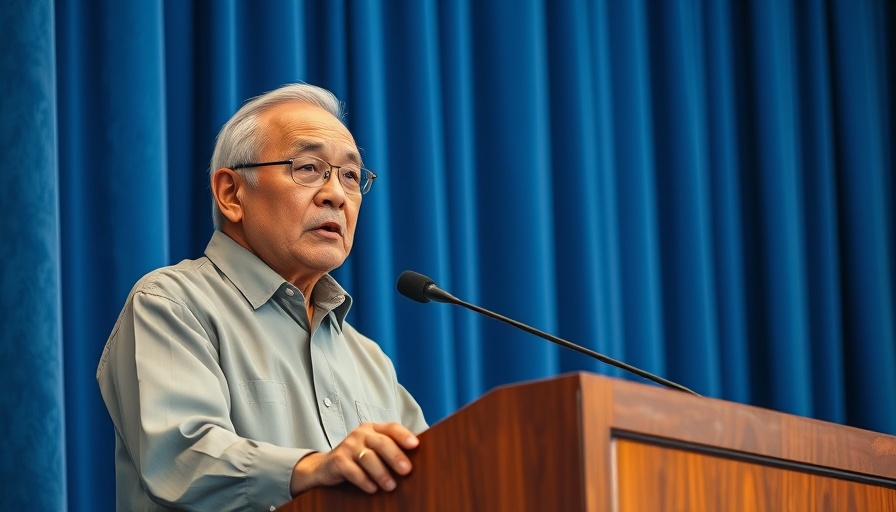
Understanding the Impacts of Trump's Proposed Tariffs
As the Asia-Pacific region braces for a significant shift in trade dynamics following former President Trump's announcement of "Liberation Day," the business landscape is shifting rapidly. Starting from his planned implementation of new tariffs, countries like Vietnam, India, Japan, and Australia are mobilizing to counter potential disruptions in trade relations. Businesses in these nations are keenly aware of how these tariffs could affect their operations, supply chains, and overall economic health.
Asia's Strategic Responses to Tariff Threats
From rising wages in Vietnam to the rapid advancement of technologies in Japan, governmental leaders are coordinating strategies to mitigate the financial strain that tariffs could impose. Premier Shigeru Ishiba of Japan, for instance, emphasizes the need for resilience, stating, "We’re working on this matter nonstop, even on weekends," reflecting a shared urgency. Countries such as India are taking proactive measures to safeguard their local industries and cultivate more competitive practices through trade agreements and fostering domestic production.
Business Perspectives on Trade Tensions
Business professionals are notably impacted by this evolving narrative. Entrepreneurs in the technology sector, for example, are ramping up their operations, seeking innovative solutions to adapt to the new regulations. While uncertainties loom large in the immediate future, many view this as an opportunity to reassess their business strategies and embrace sustainability practices in their operations to ensure long-term viability in a global economy teetering on the brink of change.
The Future: Adaptation and Opportunities
Amid these shifting norms, there lies potential for growth, especially for startups looking to innovate in response to global challenges. The ongoing digital transformation, driven by changing consumer behaviors and market needs, could present fertile ground for startups and established companies alike. A flexible approach may not only buffer the impact of tariffs but may also open the door to new partnerships and realms of business previously unexplored.
As we look ahead, it’s critical for businesses to stay informed and agile. Understanding both the local and international ripple effects of these tariffs will be key to navigating the challenges in play. With market analysis and strong leadership, professionals can harness these changes into productive strategies that promote growth and resilience.
Stay tuned to further developments regarding trade policies and their implications for the industry. Joining networks or participating in local business updates can enhance your understanding and prepare your organization for potential disruptions.
 Add Row
Add Row  Add
Add 



Write A Comment